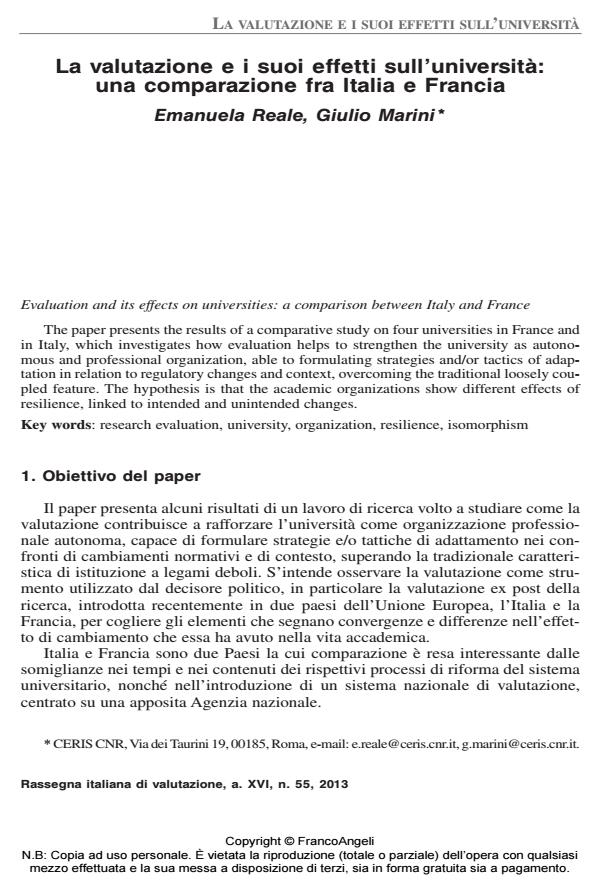Evaluation and its effects on universities: a comparison between Italy and France
Journal title RIV Rassegna Italiana di Valutazione
Author/s Emanuela Reale, Giulio Marini
Publishing Year 2014 Issue 2013/55
Language Italian Pages 20 P. 151-170 File size 602 KB
DOI 10.3280/RIV2013-055009
DOI is like a bar code for intellectual property: to have more infomation
click here
Below, you can see the article first page
If you want to buy this article in PDF format, you can do it, following the instructions to buy download credits

FrancoAngeli is member of Publishers International Linking Association, Inc (PILA), a not-for-profit association which run the CrossRef service enabling links to and from online scholarly content.
The paper presents the results of a comparative study on four universities in France and in Italy, which investigates how evaluation helps to strengthen the university as autonomous and professional organization, able to formulating strategies and/or tactics of adaptation in relation to regulatory changes and context, overcoming the traditional loosely coupled feature. The hypothesis is that the academic organizations show different effects of resilience, linked to intended and unintended changes.
Keywords: Research evaluation, university, organization, resilience, isomorphism
Emanuela Reale, Giulio Marini, La valutazione e i suoi effetti sull’università: una comparazione fra Italia e Francia in "RIV Rassegna Italiana di Valutazione" 55/2013, pp 151-170, DOI: 10.3280/RIV2013-055009